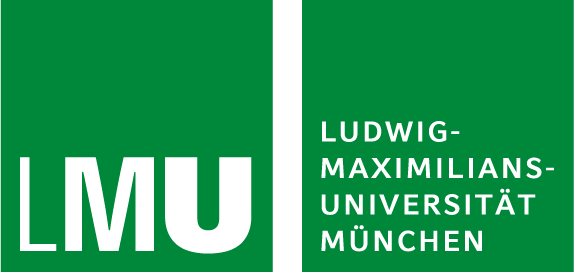Supervised Bachelor's theses of Florian Krötz
Theses and projects (PhD, MSc, BSc, Project)
-
Evaluating Python with GIL Disabled on HPC Manycore Systems.
9
2025.

BibTeX Entry
@misc{lu25, author = {Qiaomu Lu}, title = {{Evaluating} {Python} with {GIL} {Disabled} on {HPC} {Manycore} {Systems}}, year = {2025}, key = {lu25}, month = {9}, school = {Ludwig-Maximilians-Universität München}, supervisors = {Florian Krötz}, type = {Bachelorthesis}, } -
Modeling walking behaviour in counterflow comparative study of solution approaches.
5
2025.

BibTeX Entry
@misc{scho25, author = {Janik Scholl}, title = {{Modeling} walking behaviour in counterflow comparative study of solution approaches}, year = {2025}, key = {scho25}, month = {5}, school = {Ludwig-Maximilians-Universität München}, supervisors = {Florian Krötz}, type = {Bachelorthesis}, } -
Image Filtering with Fully Homomorphic Encryption.
5
2025.

BibTeX Entry
@misc{amir25, author = {Ana Amiranashvili}, title = {{Image} {Filtering} with {Fully} {Homomorphic} {Encryption}}, year = {2025}, key = {amir25}, month = {5}, school = {Ludwig-Maximilians-Universität München}, supervisors = {Florian Krötz}, type = {Bachelorthesis}, } -
Matrix product state simulator using computational accelerators with Torch.
3
2025.

BibTeX Entry
@misc{lee25, author = {Ming Lee}, title = {{Matrix} product state simulator using computational accelerators with {Torch}}, year = {2025}, key = {lee25}, month = {3}, school = {Ludwig-Maximilians-Universität München}, supervisors = {Florian Krötz}, type = {Bachelorthesis}, } -
Reviewing Quantum Advantage.
1
2025.

BibTeX Entry
@misc{vale25, author = {Rasmus Valeth}, title = {{Reviewing} {Quantum} {Advantage}}, year = {2025}, key = {vale25}, month = {1}, school = {Ludwig-Maximilians-Universität München}, supervisors = {Florian Krötz}, type = {Bachelorthesis}, } -
Comparing Tensor Network Simulations for Quantum Fourier Transformation.
9
2024.

BibTeX Entry
@misc{cims24, author = {Ege Cimsir}, title = {{Comparing} {Tensor} {Network} {Simulations} for {Quantum} {Fourier} {Transformation}}, year = {2024}, key = {cims24}, month = {9}, school = {Ludwig-Maximilians-Universität München}, supervisors = {Korbinian Staudacher and Florian Krötz}, type = {Bachelorthesis}, } -
Simulating Circuits in Quantum Natural Language Processing using Tensor Networks.
4
2024.

 PDF
PDF
Abstract
Quantum natural language processing deals with the implementation of natural language models on quantum hardware. It remains uncertain whether these models benefit from a quantum advantage or can be efficiently simulated on classical hardware. Tensor networks emerge as a promising tool in the efficient approximation of quantum states. This thesis explores the feasibility and potential advantages of employing tensor network simulation for quantum natural language processing. Using a matrix product state architecture, we investigate the complexity of simulating circuits obtained from the Categorical Compositional Distributional framework. Our results indicate an exponential complexity when these simulations are performed non-approximated. To analyze the impact of approximation on the performance of quantum natural language processing models, we introduce a binary classification task and train on two datasets, focusing on the difference between training with and without approximating the simulation. Our findings indicate that training with approximated simulation is possible, yet it exhibits greater instability and slower convergence.BibTeX Entry
@misc{muel24, author = {Adrian Mülthaler}, title = {{Simulating} {Circuits} in {Quantum} {Natural} {Language} {Processing} using {Tensor} {Networks}}, year = {2024}, pdf = {https://bib.nm.ifi.lmu.de/pdf/muel24.pdf}, abstract = {Quantum natural language processing deals with the implementation of natural language models on quantum hardware. It remains uncertain whether these models benefit from a quantum advantage or can be efficiently simulated on classical hardware. Tensor networks emerge as a promising tool in the efficient approximation of quantum states. This thesis explores the feasibility and potential advantages of employing tensor network simulation for quantum natural language processing. Using a matrix product state architecture, we investigate the complexity of simulating circuits obtained from the Categorical Compositional Distributional framework. Our results indicate an exponential complexity when these simulations are performed non-approximated. To analyze the impact of approximation on the performance of quantum natural language processing models, we introduce a binary classification task and train on two datasets, focusing on the difference between training with and without approximating the simulation. Our findings indicate that training with approximated simulation is possible, yet it exhibits greater instability and slower convergence.}, key = {muel24}, month = {4}, school = {Ludwig-Maximilians-Universität München}, supervisors = {Korbinian Staudacher and Florian Krötz and Jakob Murauer and Axel Wisiorek}, type = {Bachelorthesis}, } -
A strategy for migrating graphical application frameworks in .NET.
11
2023.

BibTeX Entry
@misc{fich23, author = {Marc Fichtner}, title = {A strategy for migrating graphical application frameworks in {.NET}}, year = {2023}, key = {fich23}, month = {11}, school = {Ludwig-Maximilians-Universität München}, supervisors = {Daniel Diefenthaler and Florian Krötz}, type = {Bachelorthesis}, } -
Assessing the Impact of Oriented Ice Crystals in Ice Water Clouds on Earthshine Observations using Monte Carlo Simulations.
11
2023.

 PDF
PDF
BibTeX Entry
@misc{muhl23, author = {Ramona Mühleisen}, title = {{Assessing} the {Impact} of {Oriented} {Ice} {Crystals} in {Ice} {Water} {Clouds} on {Earthshine} {Observations} using {Monte} {Carlo} {Simulations}}, year = {2023}, pdf = {/teaching/Ausschreibungen/Fopras/ba-earthshine}, key = {muhl23}, month = {11}, school = {Ludwig-Maximilians-Universität München}, supervisors = {Florian Krötz and Claudia Emde}, type = {Bachelorthesis}, }
Disclaimer:
This material is presented to ensure timely dissemination of scholarly and technical work. Copyright and all rights therein are retained by authors or by other copyright holders. All person copying this information are expected to adhere to the terms and constraints invoked by each author's copyright. In most cases, these works may not be reposted without the explicit permission of the copyright holder.

